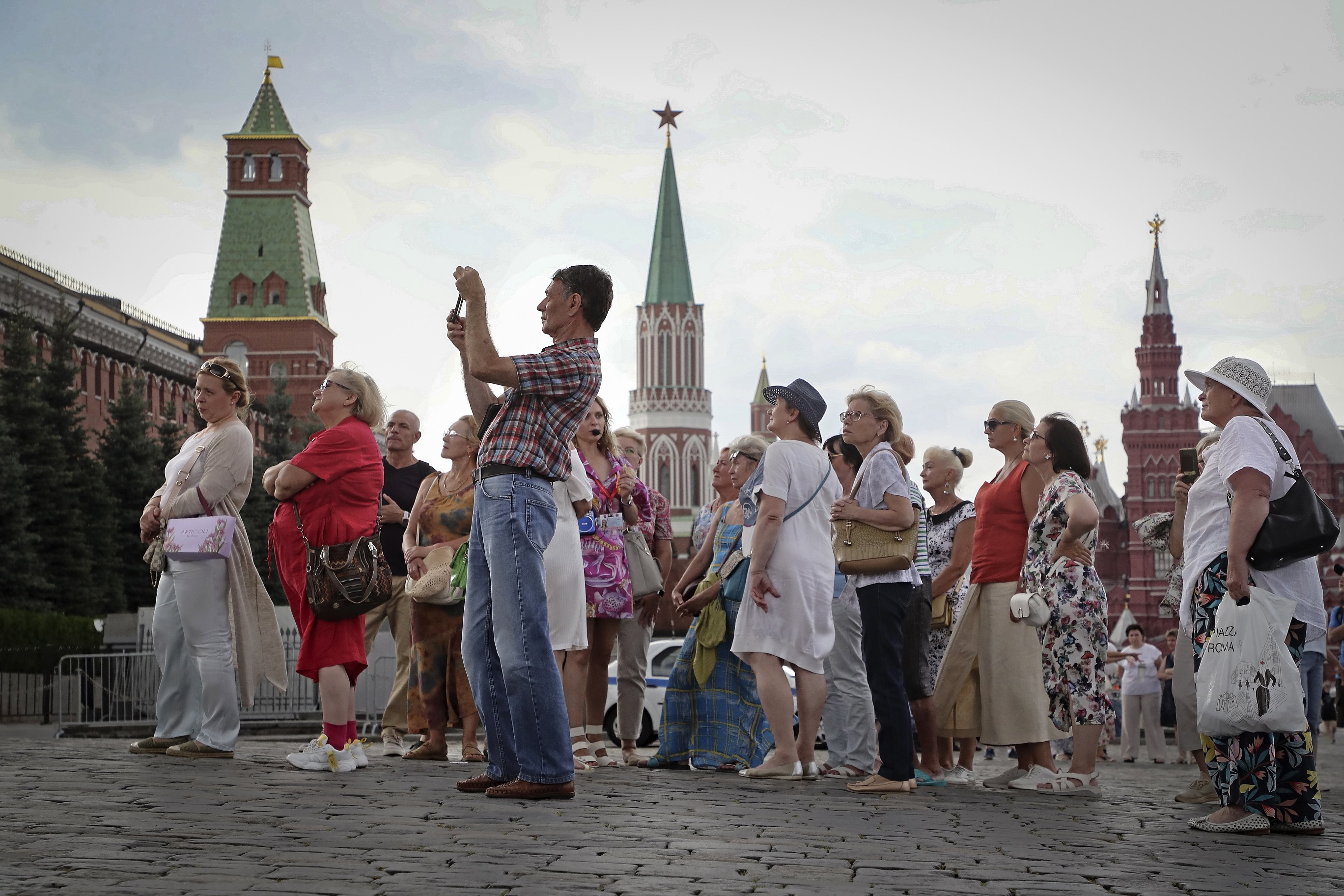Estonia to stop Russians from entering with Estonian-issued visas
Sign up now: Get ST's newsletters delivered to your inbox

Russian tourists walk on the Red Square in Moscow, on Aug 3, 2022.
PHOTO: EPA-EFE
OSLO (REUTERS) - Estonia said on Thursday (Aug 11) it will from next week prevent most Russians from entering the country with visas issued by Estonian authorities, cutting off a popular route into Europe's passport-free Schengen zone.
While exceptions apply, the Foreign Ministry for Estonia, a European Union member, said it will also cease to issue visas to Russians for work, study and business in the country.
"We have seen an enormous rise in the number of Russian citizens coming into or passing through Estonia," Foreign Minister Urmas Reinsalu said in a statement.
"The possibility they have to visit Estonia, or other parts of Europe via Estonia, en masse is not in line with the principles of the sanctions we have imposed," he said, adding that the order takes effect from Aug 18.
The EU last month agreed a seventh round of sanctions against Russia since its invasion of Ukraine.
Ukrainian President Volodymyr Zelensky on Tuesday called on the West to impose a blanket travel ban on Russians in reaction to the ongoing war, an idea that angered Moscow.
The European Commission has questioned the feasibility of a blanket ban, saying certain categories such as family members, journalists and dissidents should always be granted visas.
Latvia, Lithuania and the Czech Republic have already stopped issuing visas to most Russians, while Finland and Estonia recently called for the EU to do so jointly.
Schengen covers 26 countries including most European Union members as well as Norway, Switzerland, Iceland and Lichtenstein.
Estonia said it will continue to honour visas issued by other European countries, and also allows students already in the country to finish their degrees.
"For many (students), given the situation at present, returning home may be dangerous if they have spoken out in support of Ukraine and criticised the Russian regime and its aggression," Interior Minister Lauri Laanemets said.
Exceptions were also made for Russians who have long-term residence permits or are entering on humanitarian grounds, visitors to close relatives, diplomats and their families, and workers in international goods and passenger transport.


